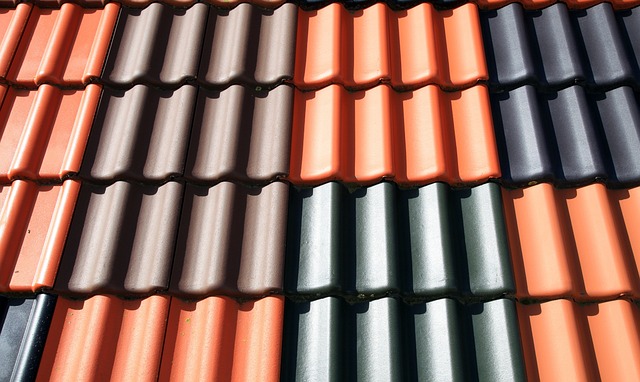Flat roof installation for commercial and residential buildings requires careful consideration of structural needs, material selection (like reinforced membranes or bitumen), and drainage systems. Regular maintenance, including inspections and repairs, is crucial for waterproof integrity and longevity. Commercial roofs demand durable materials that withstand foot traffic and building codes, with options like EPDM, TPO, PVC, and modified bitumen. Residential roofs need periodic care, including inspection, repair, and cleaning to prevent damage. Flat roof specialists offer tailored solutions, addressing issues like weak spots and providing long-lasting, waterproof protection for both commercial and residential properties.
“Discover the art of customized flat roof solutions – a comprehensive guide for both commercial and residential needs. Flat roof installation is a craft that demands expertise, especially when navigating the diverse challenges of different structures.
Learn how to choose the ideal materials for your business or home, with an in-depth look at commercial flat roofing options. Explore maintenance tips and repair techniques for residential flat roofs, ensuring longevity. Uncover the secrets to waterproof and durable solutions, highlighting the vital role of professional flat roof specialists in crafting robust flat roof services.”
- Understanding Flat Roof Installation: A Comprehensive Guide
- Commercial Flat Roofing: Choosing the Right Materials for Your Business
- Residential Flat Roofs: Maintenance Tips and Common Repair Techniques
- Waterproof and Durable Solutions: The Role of Expert Flat Roof Specialists
Understanding Flat Roof Installation: A Comprehensive Guide
Flat roof installation is a specialized process that requires expertise and precision. Unlike sloped roofs, which are more common in residential areas, flat roofs are often found on commercial buildings, industrial facilities, and some modern residential structures. Understanding the intricacies of flat roof installation is essential for property owners and managers seeking durable and reliable roofing solutions.
The first step in any flat roof project involves assessing the structure’s requirements and existing conditions. This includes evaluating the building’s load-bearing capacity, identifying potential points of leakage, and selecting suitable materials that can withstand local climate conditions. Commercial flat roofing often employs reinforced membranes or single-ply systems known for their versatility and longevity. Residential flat roofs may opt for bitumen-based materials combined with insulation to ensure energy efficiency. Flat roof specialists also consider proper drainage systems to prevent water accumulation and potential damage. Regular maintenance, including inspections and repairs, is crucial to prolonging the lifespan of these rooftops, ensuring they remain waterproof and structurally sound.
Commercial Flat Roofing: Choosing the Right Materials for Your Business
Commercial Flat Roofing: Selecting the Ideal Materials for Your Business
When it comes to commercial flat roofing, choosing the right materials is a strategic decision that ensures longevity, durability, and protection for your business assets. Unlike residential flat roofs, commercial structures often demand more robust and high-performance solutions due to increased foot traffic, heavier loads, and stringent building codes. Flat roof specialists recommend selecting materials that offer superior strength, weather resistance, and long-term cost-effectiveness. Waterproof flat roof systems are a popular choice, providing an extra layer of protection against leaks and moisture damage.
Durable flat roofs, such as those made from high-quality membranes or metal, can withstand harsh environmental conditions and the constant exposure to UV rays. Flat roofing materials have evolved significantly, offering various options like EPDM (ethylene propylene diene monomer), TPO (thermoplastic olefin), PVC (polyvinyl chloride), and modified bitumen. Each material has unique benefits in terms of installation ease, cost, and lifespan, catering to different business needs. Regular flat roof maintenance and timely repairs are also vital to extend the life of these systems, ensuring your commercial space remains protected under all circumstances.
Residential Flat Roofs: Maintenance Tips and Common Repair Techniques
Residential flat roofs require regular maintenance to ensure their longevity and protect your home from potential damage. Here are some essential tips for keeping your flat roof in top condition: start by inspecting it periodically, looking for any signs of wear, leaks, or loose fixtures. Timely repairs are crucial; addressing small issues early can prevent more extensive and costly damage later. Regular cleaning is also vital to remove debris buildup, which can block drainage systems and compromise the waterproof membrane.
Common repair techniques for residential flat roofs include patching damaged areas with compatible roofing membranes or flashing, replacing missing or broken shingles or tiles, and sealing seams and joints. For larger repairs or full replacements, consider hiring flat roof specialists who offer a range of flat roofing materials suitable for commercial and residential properties. A waterproof flat roof is the cornerstone of durable flat roofs, ensuring your home stays protected from the elements.
Waterproof and Durable Solutions: The Role of Expert Flat Roof Specialists
When it comes to water protection and durability, custom flat roof solutions require expert hands. Flat roof installation and repair demand a deep understanding of specialized materials and techniques to ensure your roof not only withstands the elements but also remains leak-free for years to come. Professional flat roof specialists are equipped to handle both commercial and residential flat roofing needs using high-quality flat roofing materials.
These experts play a pivotal role in selecting the right waterproof flat roof systems, knowing that durability hinges on proper installation and regular maintenance. They employ advanced methods and innovative solutions to address common issues like weak spots, damaged membranes, or improper flashings—all essential components for maintaining a robust flat roof. By prioritizing flat roof services and ongoing maintenance, homeowners and business owners can expect long-lasting performance from their rooftops, safeguarding their properties from potential water damage.
Customized flat roof solutions cater to both commercial and residential needs, offering a range of durable materials and expert services. Whether it’s for a bustling business or a home in need of repair, understanding the unique aspects of flat roof installation and maintenance is key. By choosing the right materials and enlisting professional help, you can ensure a waterproof, long-lasting rooftop that stands the test of time. Remember, proper care and regular checks are essential to keep your flat roof in top condition.
